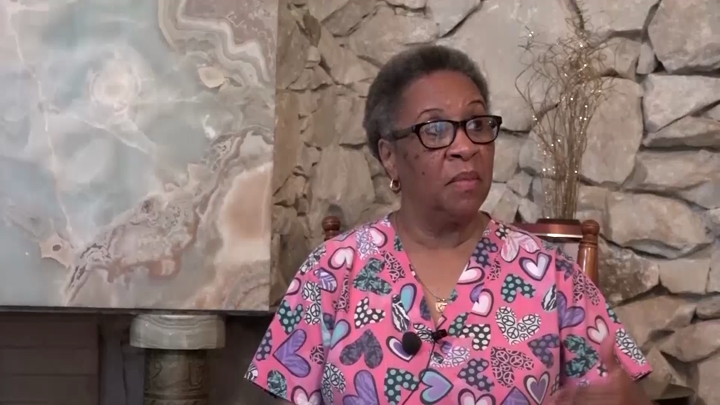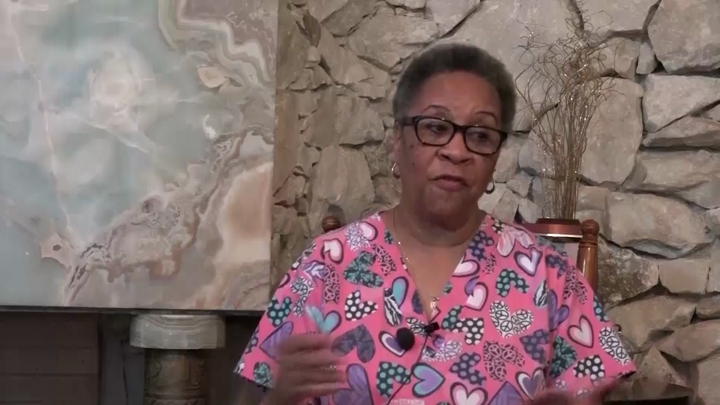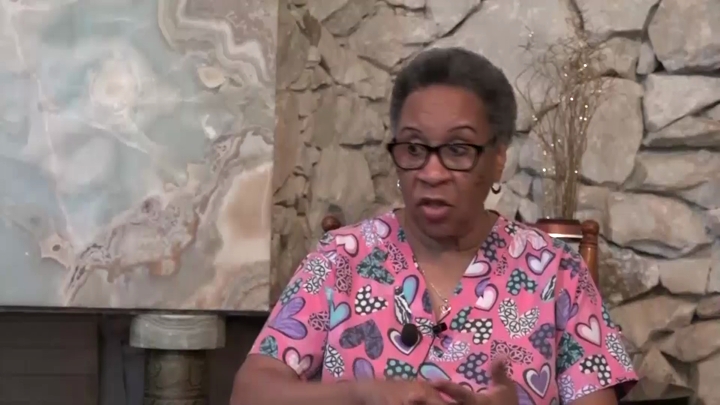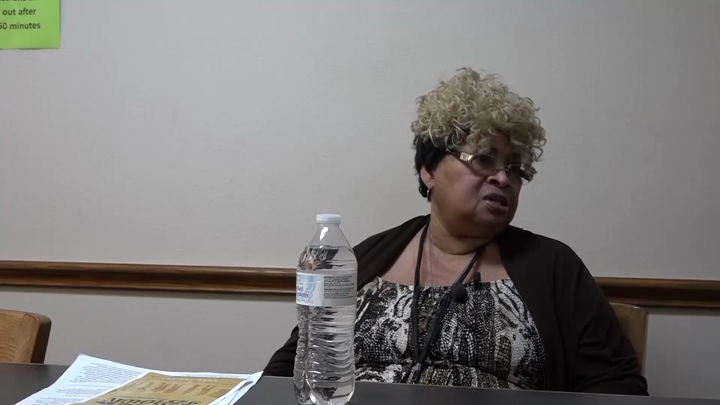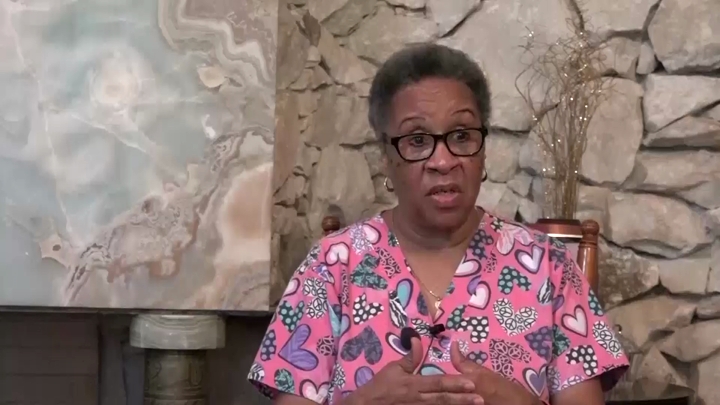Abdullah / Segregation, Police Brutality, the Civil Rights Movements
sign up or sign in to add/edit transcript
Interviewer: So, I know in terms of segregation and maintaining the places of blacks and whites in Nacogdoches, law enforcement was essential— Helena Abdullah: Notorious. Interviewer: —and critical to maintaining those distinctions. Did you hear any stories growing up about Chief Roebuck? Helena Abdullah: Now that you mention that. That’s some of the stuff my mother would talk about. She talked about Roebuck and his notorious temper and how he treated blacks. I wish I could remember incidences. I remember incidences, but I can’t remember names of people that were either shot by him, beaten up brutally by Roebuck, also Lightfoot. Roebuck was the police department. Lightfoot was the sheriff’s department and they both did a lot of things. Roebuck was the worst of all of them. Mother did talk about a lot of the things, the people that might have come through the emergency room. For a time, she did work in the emergency room. She also told me too, that Roebuck had a son and he was about sixteen years old, seriously ill in the hospital and he ended up dying in the hospital. His wife lambasted him because she said “It’s all your fault. All these black people you have hurt and beat up and done ugly things to is manifested in our son. That’s why he’s dead.” Mother said she was surprised that she would even mention that because she did it in front of the nurses, white and black nurses. Told him that what happened to their son was his fault because of the life he lived and how he had mistreated so many people in his lifetime. So that was some of the things she talked about. She talked about a lot of people that would come up there beaten up and stuff like that, but you know, they didn’t give you a whole lot of information. You just hear whispering and talking a little bit about stuff like that. Interviewer: I know that other people have mentioned a shooting of either a sheriff? A sheriff shot a black father for checking on his son? His son was arrested, and he was checking on him and he was shot. Do you remember hearing stories about that? Helena Abdullah: You know, I can’t remember that, but I bet you a dollar to a donut if my mother was here she could tell you who that was and what it was about. Mother was pretty much in the know about what was going on in the community, her and daddy back in the day. Their parents knew a lot of people and they were in the circle of people who talked about all those things and talked about the change that needed to come. Mr. Sid Roberts who owned the funeral home. Mr. Sally who owned another funeral home. They were all in the same circles. Dr. Harris. All these people who were educated and had some power in the community however we weren’t always privy to a lot of that information. Interviewer: We mentioned Mr. Arthur Weaver a lot. What was some of the stuff he was able to get accomplished before the 1960s? Helena Abdullah: What I remember him talking about was him writing to the federal government and getting people to come down here or getting investigations started. He would write the national NAACP and he’d have people down here. As I said, I was a young girl during that time, so I wouldn’t know a lot of the instances, but I remember the talk. I remember Mr. Weaver talking about somebody coming here. When somebody would come down here, there was always a buzz in the community but being sassy at fifteen years old I didn’t care anything about that. I went on about my nevermind with my friends. My awareness didn’t come until I was nineteen and at SFA. I remember the buzz about a lot of things going on with voting and with people trying to run for offices and getting scared out of running. Just things like that. There was a lady, graduated with my brother, her name was Jean Latham. She wrote to Chief Justice, oh mercy and I can’t remember his name. Interviewer: Was the name Justice? Helena Abdullah: William Wayne Justice. William Wayne Justice about the disparity of blacks running for the hospital board. When he came, she wrote this big to-do about it and he came, and he changed that because of her writing. He had been a federal judge. He changed it, so blacks could be represented in all phases of Nacogdoches county. I remember because some years after that I ran for the hospital board and won. I was the first black female, the second black, but the first black female on the hospital board and it was because of her work. One of the highlights of my civil rights career was sitting next to him up at Stephen F. Austin when we had a panel discussion about civil rights. I knew him way before I thought he knew me. When he came down, he said, "Mrs. Patton." Blew me away! I said, "Yes sir, Mr. Justice. He said, "I’m glad to meet you. I know a lot about you." Honey, you could have bought me a soda for a nickel. That was the culmination to me of knowing that you were on the right track because if somebody that was as powerful and as well known as he was knew of me and the movement that we were trying to get done here. Somebody in high places was watching to make sure that everything was okay. Thankfully, when we were marching and doing all these things, the boycotting and everything, we didn’t lose anybody. Now some people got maced and a couple people got rustled up a little bit, but thankfully we didn’t lose one soul to the police department.
| Interview | Interview with Helena Abdullah |
| Subjects | Family |
| Family › Childhood Experiences | |
| Community Organizations › Civil Rights Organizations › National Association for the Advancement of Colored People (NAACP) | |
| Discrimination or Segregation | |
| Police and Law Enforcement | |
| Police and Law Enforcement › Police Brutality | |
| Student Activism | |
| Direct Action › Protests | |
| Tags | Justice, William Wayne |
| Lathaan, Jean | |
| Stephen F. Austin State University | |
| Weaver, Arthur | |
| sign up or sign in to add/edit tags | |
| Interview date | 2016-06-30 |
| Interview source | CRBB Summer 2016 |
| Interviewees | Abdullah, Helena |
| Interviewers | Howard, Jasmin |
| Locations | Nacogdoches, TX |
| Duration | 00:07:00 |
| Citation | "Segregation, Police Brutality, the Civil Rights Movements," from Helena Abdullah oral history interview with Jasmin Howard, June 30, 2016, Nacogdoches, TX, Civil Rights in Black and Brown Interview Database, https://crbb.tcu.edu/clips/2349/segregation-police-brutality-the-civil-rights-movements, accessed February 25, 2026 |


